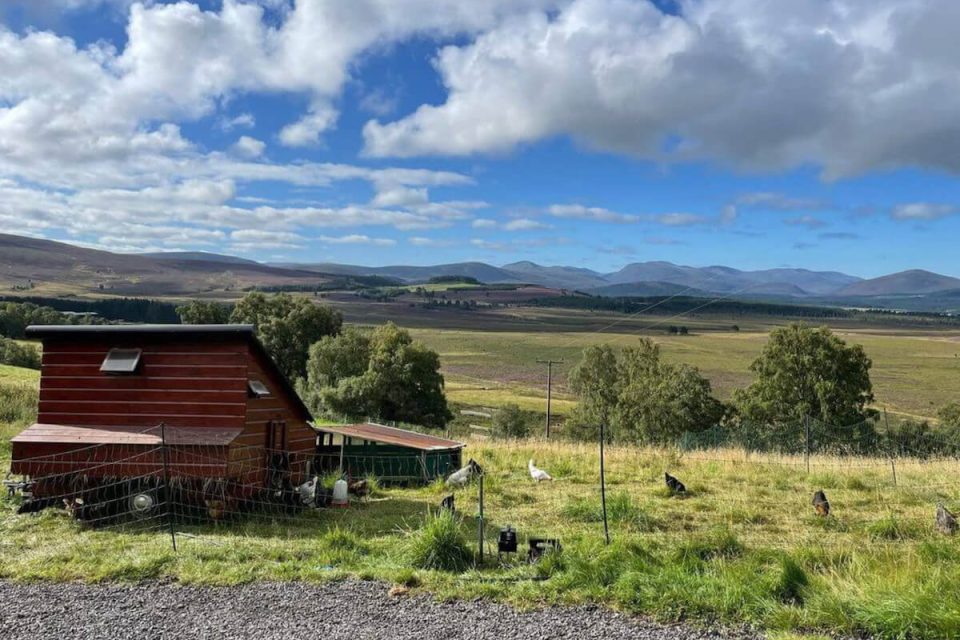For those of you who don’t already know me, my name is Leanne Spencer. I’m a keynote speaker, author of three bestselling books, and have been in the wellbeing space for about 11 years. During that time, I’ve gathered a lot of experience – one experience in particular, I’m going to share with you today. This week is Mental Health Awareness Week; the theme for 2023 is anxiety, and I want to discuss the importance of rest.
Anxiety is multifaceted; multicausal. Despite this, one thing we all have in common is the need for rest. Now, this isn’t a new idea, but I believe that we tend to think of rest as a large swathe of time, rather than what I call slivers of recovery; small opportunities. One thing we are all able to do is prioritise a little more rest throughout the day. And no matter how our anxiety manifests, this will undoubtedly prove helpful in some way – big or small.
A Metaphor For Rest
This idea really came into sharp focus for me in August last year. I’d signed up for the ‘How to Farm’ course at Lynbreck Croft after reading the book written by its owners, Lynn and Sandra, which took me to their website. As a vegetarian, I have no plans to farm animals myself. However, it turns out that there are many similarities between regenerative farming and wellbeing.
So, I arrived on this farm, it’s absolutely beautiful. To the left, you’ve got a homestead and kitchen garden, and five beehives beyond that. And to the right, you’ve got a byre and then a barn. On a clear day, you can look ahead to the Cairngorm Mountains in the distance. To one side there are hills, surrounded by purple heather, and to the other, fields with patches of woodland – home to four pigs and seven cattle. And, running around the entire farm are around 70 free-range, organic chickens.
One day, we were in one of those fields, and Sandra was explaining some of the principles of regenerative farming, including a tactic called “mob grazing”. This entails sectioning off part of the field with some electric fencing, and putting animals inside to graze and tread around. A few weeks later, that section is lifted and moved – the animals with it – to allow the area of land to recover. And there is evidence of that all over the field: new species of grass, flora and fauna, different insects and invertebrates. And whilst explaining this, Sandra turned to the group and said, “The most important part of land stewardship is rest. The land cannot regenerate if it isn’t given the chance to recover.”
How Can This Help You?
For me, that was quite the mic-drop moment; I cannot think of a better metaphor for my work in wellbeing – which is why I wanted to tell you this story for Mental Health Awareness Week. Because, irrespective of the type of mental health issue we might be experiencing, rest and recovery is an absolute foundation for approaching it – or simply to prioritise good mental health, or your health in general.
So my question to you this Mental Health Awareness Week is this: whether you’re suffering with anxiety or not, are you getting enough rest? Do you give yourself the chance to recover, and therefore the opportunity to regenerate? And I’m talking about the small stuff, by the way. Small changes can have a big impact. It’s not about making radical changers or big chunks of time. What do you do to rest or recover? And, if you’re not sure about how to answer, we’ve produced a lot of content on this over the years, which you can access here.
If you’re interested in finding out more, you can visit my other website, www.leannespencer.co.uk, where you can find a keynote on this topic. You might also want to check out my book, Cadence: the Secret to Beating Burnout and Performing in Life and Work, which features this, amongst other stories as well. But I just want to finish by saying that if you’re struggling with your mental health, reach out to someone. Whether it’s a loved one, colleague or medical professional, you are not alone.
Wellbeing Resources
If you frequently sit or stand at a desk for most of the day, check out our free Posture Guide For Desk Workers. This will help to ensure your workstation is set up correctly. It also includes some easy-to-follow tips and advice on being active, staying healthy, avoiding any musculoskeletal issues.
Using our model of the Cadence Approach™, we’ve created an interactive infographic for you to share with your teams to promote good health and wellbeing. Access online or download the PDF for practical tips on sleep, gut health, the nervous system, fitness, energy, recovery, supplementation and hormetic stress.


